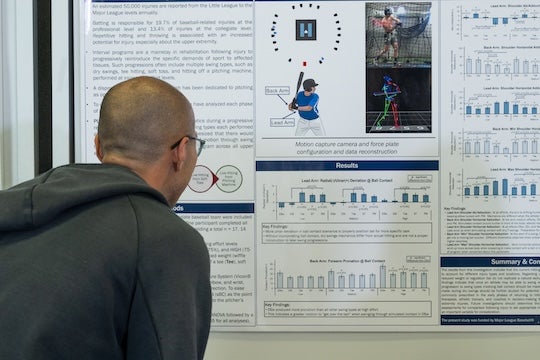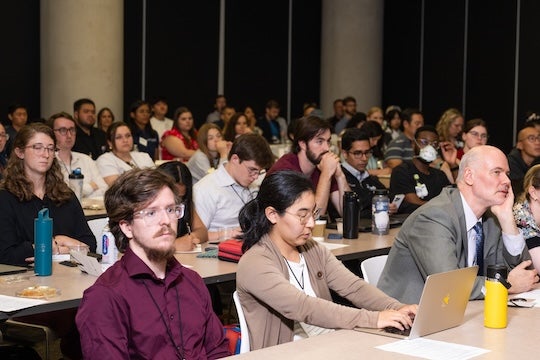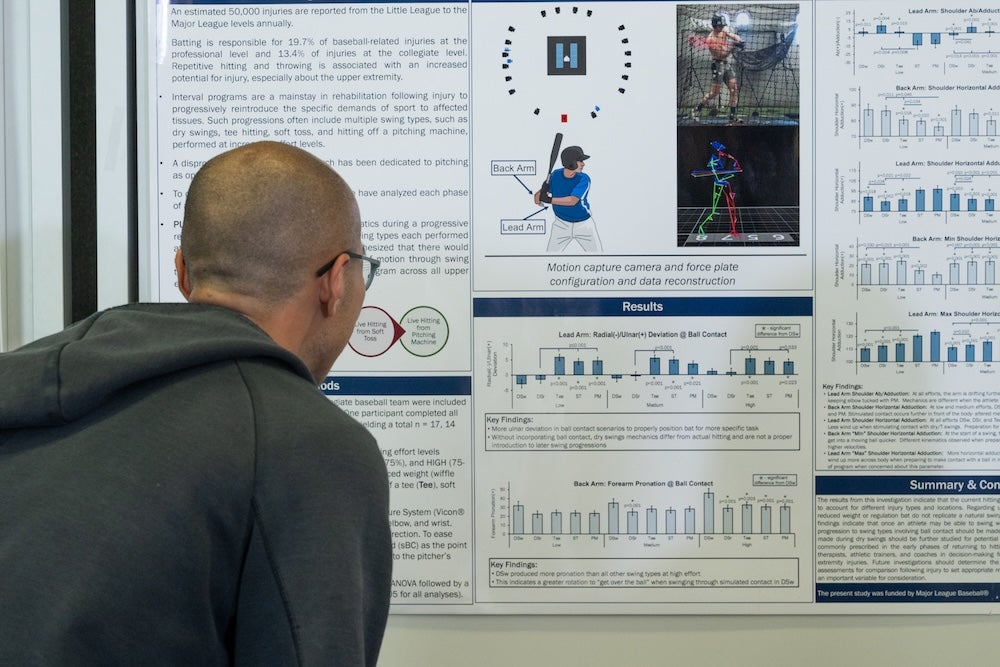Rice University’s Office of Educational and Research Initiatives for Collaborative Health (ENRICH) and the Department of Kinesiology co-hosted a research and networking event with Houston Methodist this summer at the BioScience Research Collaborative. The event showcased the Center for Human Performance’s capabilities and ongoing research, while fostering collaborations between faculty from both institutions ahead of the center’s 2025 seed grant offering.

The Center for Human Performance was established in 2022 as a joint initiative of Rice and Houston Methodist to advance research and education in the field, integrating expertise in human movement, rehabilitation and injury prevention with innovative tools ranging from state-of-the-art assessment equipment to wearable technologies. This initiative demonstrates Rice’s commitment to health care innovation, which is a key element of its 10-year strategic plan, Momentous, and reflects the university’s focus on forging institutional partnerships with academic medical centers such as Houston Methodist to create real-world impact.
“Houston Methodist and Rice’s combined efforts are protecting athletes’ and performing artists’ health and livelihoods,” said Amy Dittmar, the Howard R. Hughes Provost and executive vice president for academic affairs. “We are improving the quality of life of older adults, people with disabilities and surgical patients’ quality of life. Your important, innovative research makes this possible.”
The event featured a lineup of experts including Augusto Rodriguez, co-director for the Center of Human Performance and chair and associate teaching professor of kinesiology, along with Rice faculty including Nadia Agha, Marcia O’Malley and Momona Yamagami. Houston Methodist was represented by Patrick McCulloch, Brad Lambert and Dominik Haudenschild, who discussed cutting-edge therapies in orthopedics and sports medicine.
“Rice’s partnership is already advancing Rice’s kinesiology department and providing more opportunities for translational research in the engineering disciplines,” Rodriguez said.

Rice faculty, staff, postdoctoral researchers and graduate and undergraduate students attended the event, along with staff from Houston Methodist and several other Texas Medical Center institutions.
“Our collaboration with Rice is rooted in a shared commitment to translational science,” said McCulloch, co-director for the Center of Human Performance and John S. Dunn Chair of Orthopedic Surgery at Houston Methodist. “By combining engineering innovation with clinical insight, we’re creating new pathways to restore function, prevent injury and improve performance for people across all stages of life.”
Advancing health innovations
The Center for Human Performance, along with the Center for Neural Systems Restoration and the Digital Health Institute, unite Rice’s engineering strengths with Houston Methodist’s clinical expertise to address complex health challenges, from advancing brain and spinal cord research to developing new digital health technologies that increase operational efficiency in health care delivery and access to equitable care.
Moreover, to solidify their shared mission to advance cutting-edge health and wellness research, Rice and Houston Methodist have collectively awarded more than $2 million in seed funding since 2022. Continuing this commitment, the Center for Human Performance launched a call for proposals in May. This initiative encourages the development of joint, multidisciplinary research projects between both institutions that focus on at least one of the following:
- Rehabilitation strategies to improve patient outcomes.
- Injury prevention or postoperative complications.
- Clinical innovation for health improvement, chronic disease management, pain management, infection prevention and improvement of surgical performance with the use of advanced robotics and virtual reality-assisted surgery.
- Evaluation of how new wearable devices, applications, training modalities and nutritional interventions improve human performance.
Up to three projects will be funded through the Houston Methodist Academic Institute and ENRICH to support these new innovative projects over a 12-month period.
“This is only the beginning,” Dittmar said. “I can’t wait to see how this partnership and our other joint ventures increasingly impact patient lives and the practice of medicine for the better for years to come.”

